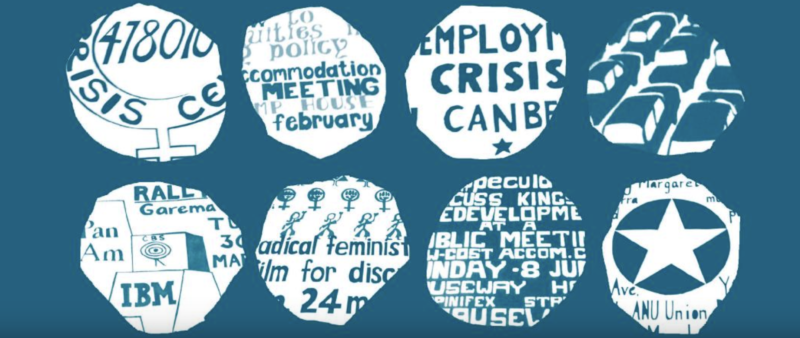At the 2017 December Arts and Social Science Graduation Ceremony, Geraldine Fela – a dedicated education and refugee activist – delivered the following graduation address. Containing none of the usual platitudes of graduation speeches, Geraldine instead took the opportunity to reflect on the connection between the arts and social sciences, critical thinking, empathy and the injustice perpetuated by Australia’s current refugee policy.
Students delivering graduation speeches are required to submit their speeches before delivery to the ANU. The University was not entirely pleased with Geraldine’s speech and requested she change several aspects. She replied she would ‘take on board their feedback’, but decided to deliver the original speech.
Good afternoon everyone, this is such an exciting day and I feel immensely privileged to be speaking here today. I think it is important to begin by remembering that today we celebrate on stolen Aboriginal land, the land of the Ngunnawal and Ngambri people. Their sovereignty over this land was never ceded and their struggle for justice and land rights continues to this day.
On behalf of the graduating class of 2017, I extend my utmost respect to the Indigenous elders past, present, and emerging, and to all first nations people present today. To the Ngunnawal and Ngambri people in particular, I extend the deepest of thanks. Thank you for having us on your lands to live and learn and now, today, to graduate.
Each of us graduating today has dedicated the past three, four, maybe five years to a discipline in the arts and social sciences. This is no mean feat. For years we have honed our critical thinking skills, developed our ability to write and communicate. Thanks to our dedicated tutors and lecturers, we have learnt to think differently about the world around us, to question what we otherwise might take for granted. And it must be said that our teachers have taught us and we have learned, despite the neoliberal university context that too often does not value things— like the arts—that are hard to monetise and quantify. For this, each and every one of us deserves congratulations. By dedicating ourselves to the arts and social sciences we have sent a strong message that university should be about more than just ticking boxes and preparing ourselves for the ugliness of the labour market.
For the past few years, we have committed ourselves to understanding the world in all of its complexity and we have engaged with questions that concern our collective humanity. The arts and social sciences encourage us to learn from other people. Whether those people are our forbears, our next-door neighbours or people whose life experience, language, and culture is different from our own.
Perhaps most importantly, in the arts and social sciences we are taught to think about other people with empathy, to find common ground.
What could be more important than this? The world we are entering now, as graduands, desperately needs people who think critically and empathetically. In the last six weeks, as we completed our final exams and waited anxiously for results, a humanitarian crisis was orchestrated by our own government. For 23 days our government laid siege to the Manus Island Detention centre, the prison which has held close to a thousand asylum seekers and refugees for four years. The men peacefully resisted the government’s attempts to relocate them to a new prison—an unfinished and inadequate facility. For this they paid a high price. They had their belongings destroyed and the well they built soiled. Finally, on the 23rd day, they were beaten with metal poles and forcibly relocated.
And whilst the humanitarian crisis on Manus is still unfolding, today we are here to celebrate the commitment each and every one us has made to studying different aspects of humanity, whether it be our past, our present, the art and literature we create, the languages we speak, the rituals we perform.
The inhumane brutality of Australia’s refugee policy chips away at all those things that we, in the arts and social sciences, hold dear. It chips away at all the best parts of us: the part that creates beautiful things in the world for us to read and study and admire, the part of our humanity that seeks to develop understanding across boundaries and borders, whether they be temporal, physical or linguistic.
The refugees on Manus Island know this too. At the end of the siege Kurdish detainee and journalist Behrouz Boochani had this to say:
Our resistance had a broader purpose. It was to be a model and present a new way for humanity. We wanted to show how humans have this capacity to be kind and peaceful and care about humanity even in a harsh situation.
Like the refugees on Manus we, as graduands of the arts and social sciences can take a better vision of humanity into the world. One that empasises empathy and understanding but that is not afraid to challenge dominant ideas and to fight for what is right, even when it’s not popular.
And what an achievement that is! Congratulations to the graduation cohort of 2017. Congratulations and thank you to our family and friends who supported us and to our lecturers and tutors who inspired us. Let’s celebrate today because we’ve all worked hard. But tomorrow, let’s use the insights and skills we have gained to fight for a more fair, equal, and just world.

